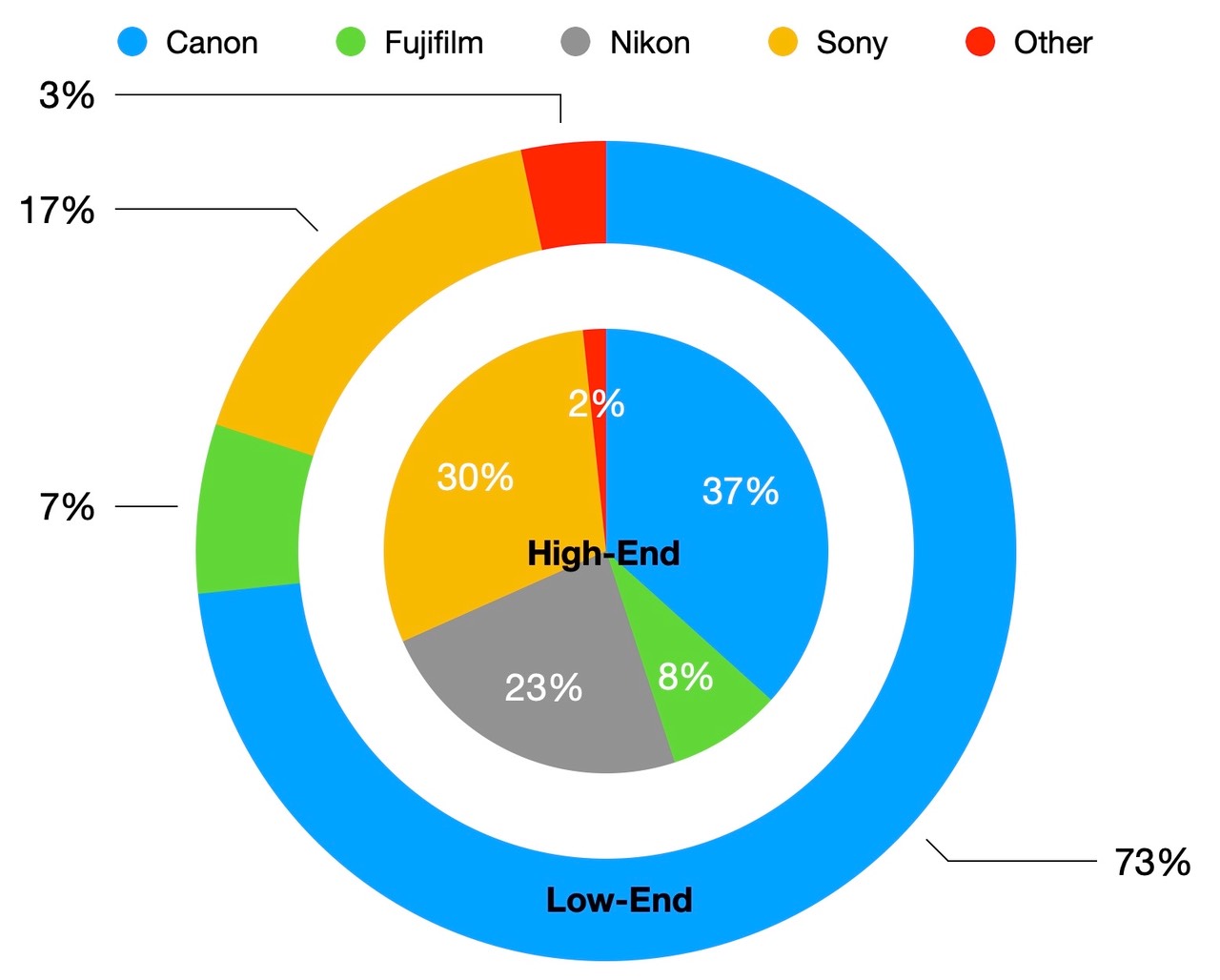L
Loswr
Guest
So on the one hand, your point is that camera manufacturers must sell more expensive gear because that's where the revenue is so that's why Sony is selling more (value) than Canon, and on the other hand your point is that younger people don't want to adapt lenses, so that's why Sony is more versatile than Canon.People, especiall younger people coming in buying "new" cameras don't want to put an "old" lens on it with an adapter.
Therefore, the audience best-satisfied by Sony are young people who can afford expensive cameras. Doesn't sound like a viable strategy to me. Perhaps it depends on your definition of 'younger people' but 35-65 year-olds are typically the high-earners. YouTube is considered a Gen Z thing, those folks on average make half of what the age 35-65 groups earn. That means many of the people responding to the survey you mentioned probably can't even afford the FF camera system with f/2.8 zooms that you think 'everybody' wants.
Sony does a great job with social media and influencer promotion, particularly by giving away a lot of gear to them.
Upvote
0

